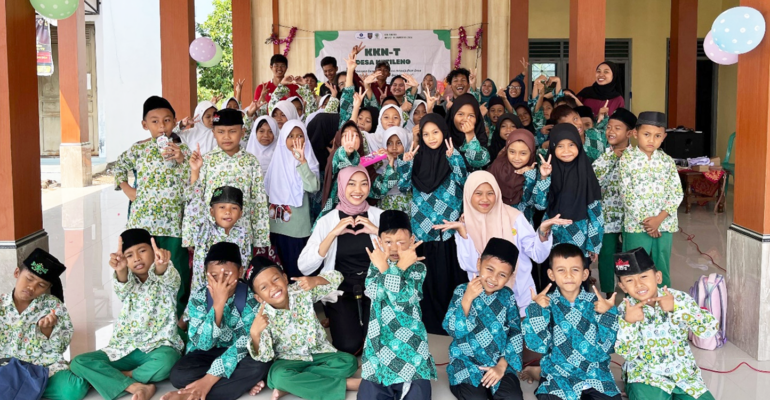Sexual Violence is Increasingly Rampant, IPB University Innovation KKNT Team Provides Prevention Education in Ketileng Village

In order to instill early education and reduce the number of sexual violence in the future, IPB University’s Innovation Real-Thematic Work Lecture (KKNT) students held ‘Cerdik: Intelligence of Ketileng Village Children’. This activity was aimed at elementary school children in Ketileng Village, Tegal, Central Java.
“The rise of sexual violence cases inspired us, KKNT Innovation IPB University students, to educate Ketileng Village children regarding sexual education,” said Widiya Kusuma, one of the students.
She explained that the Cerdik activity was divided into two series. The first series was held at Madrasah Aisyiyah and Madrasah Aswaja. This first activity was filled with material on the importance of protecting oneself from the dangers of sexual violence.
“The main thing is which parts of the body can and should not be touched by strangers. This aims to provide early education regarding the dangers of sexual violence which is increasing among children,” she said.
At the same time, Field Supervisors visited Ketileng Village and monitored the KKNT Innovation activities.
“At first the children laughed and joked when they heard about sensitive body parts. However, after being given education the children began to understand that the material was a lesson in self-preservation,” said Widiya describing the response of the children participating in the activity.
Sodikin as the Head of Madrasah Aisyiyah Ketileng Village gave a positive response. He admitted, “Good. This activity has never been done in Ketileng Village. In addition, this activity is positive to provide knowledge to children about the dangers of sexual violence.”
The second series was filled with role-playing activities related to professions. KKNT Innovation students acted as researchers, musicians, athletes, contractors, painters, flight attendants, and others. The goal is to provide knowledge related to many professions that are not yet known by village children, so that children have a broader view of their ideals. (*/Rz) (IAAS/TIR)



